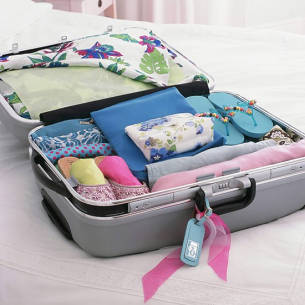 If you are considering Australia as a travel destination, do some research before buy your tickets so that you can increase your chances of finding a cheap flight. Being familiar with searching for the best travel package deals is important so you can save money especially if you are looking to visit Sydney, Australia. There is so much to do and see, and you are going to want to experience as much of it as possible. But the only way to do that is to save money wherever you can.
The Internet is the traveler’s best friend because it allows you to find great travel package deals quickly and very easily, especially for cheap flights to Australia. Having a little bit of knowledge about how the travel industry functions can also help you save some money.When should you fly to Australia?Similar to any industry, traveling has its on and off days and seasons.
If you are considering Australia as a travel destination, do some research before buy your tickets so that you can increase your chances of finding a cheap flight. Being familiar with searching for the best travel package deals is important so you can save money especially if you are looking to visit Sydney, Australia. There is so much to do and see, and you are going to want to experience as much of it as possible. But the only way to do that is to save money wherever you can.
The Internet is the traveler’s best friend because it allows you to find great travel package deals quickly and very easily, especially for cheap flights to Australia. Having a little bit of knowledge about how the travel industry functions can also help you save some money.When should you fly to Australia?Similar to any industry, traveling has its on and off days and seasons.
International Student Travel Tips for Flying to Australia
An international student’s time in Australia will be filled with many exciting moments, but few will be as suspenseful as the moment you board an airplane in your home country to finally embark for Australia after months of planning and anticipation.
Before you say your good-byes to family and friends and take a seat for your long trip, here are a few suggestions to help you prepare for a smooth flight to Australia.
Travel Documents Required for Flying to Australia
International students will need a valid passport, a valid student visa and a completed incoming passenger card (IPC) to enter Australia and pass through customs at an Australian airport. You should also carry with you the letter or certificate of enrollment that your host school provided to you when they accepted you for admission.
Your home university’s office of International Students and Study Abroad Programs in many cases will be able to assist you in acquiring these documents, with the exception of the IPC, which will be distributed to you during your flight. On the card, you will be asked to provide standard identification information, declare your general health status and state the Australian address where you will live.
When you disembark your flight in Australia, you will show all your travel documents to immigration and customs officials.
Don’t forget to keep your travel documents in a safe place for the duration of the time you’re in Australia. They may be required for flying in Australia should you decide to take a trip within the country, as well as for re-entry to your home country at the end of your stay.
Student Fares and Other Ticket Deals for Flying to Australia
Several private travel companies specialise in discounted student airfares and travel insurance, and your home university’s office of International Students and Study Abroad Programs may have favored student ticketing agent to recommend.
Sometimes access to low student fares is dependent upon joining a student travel organisation for a fee. The fee may be well worth it if membership also includes student discounts at restaurants, tourist attractions, and on other goods and services in Australia.
If you are a member of a travel organisation such as AAA, or if you are a frequent flier on a particular airline, discounted student airfares may not necessarily be the most inexpensive way to fly to Australia. Just as you would comparison shop for the best airline ticket price for any other trip, you will want to compare ticketing outlets for your flight to Australia.
Student Packing Tips for Flying to Australia
Since many airlines now limit the number and weight of luggage pieces each passenger may bring, packing for an entire semester abroad in Australia can be tricky.
Most of your luggage space will undoubtedly be reserved for clothing, so thoroughly research the climate of the area in Australia you will be staying in order to avoid bringing unnecessary or useless items. Australia’s warm-weather season generally starts in February, and its cold-weather season follows beginning in July.
Any electronic items you bring to Australia will require the purchase of an Australian-compatible voltage converter and outlet adapter. If you bring multiple electronic devices to Australia, it may make sense to also bring a power strip, so you will only require one adapter device.
It’s wise to limit the food you will bring on your flight to only small amounts that you will be able to entirely consume while still in the air. Any food you attempt to bring into Australia when you disembark your flight will likely be confiscated by customs officials.
Last, make sure you pack your important travel documents in your carry-on bag, so you will have easy access to them; and include in your carry-on a supply of cash, traveler’s cheques and a fresh change of clothes in case your luggage gets lost or delayed.
With these travel tips in mind, you will soon be safely and smartly off to Australia where your once-in-a-lifetime study abroad experience awaits.


